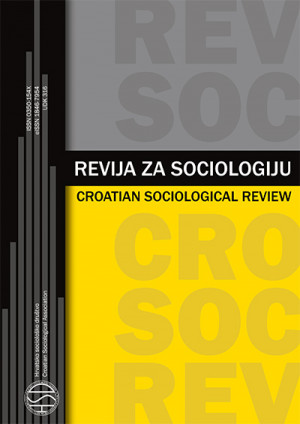Stavovi studenata odabranih sastavnica Sveučilišta u Zagrebu o pasivnoj eutanaziji
Attitudes toward Passive Euthanasia among Students from Selected Constituents of the University of Zagreb
Author(s): Filip Trbojević, Bruno ŠimacSubject(s): Education, Ethics / Practical Philosophy, Health and medicine and law
Published by: Hrvatsko sociološko društvo
Keywords: locus of control; (passive) euthanasia; political attitudes; the right to die; religiosity; Scale of Attitudes toward Passive Euthanasia (SAPE);
Summary/Abstract: The phenomenon of passive euthanasia is a controversial issue that has been raising questions within academia and among the broader public alike. Given the growing debate in the field of human rights and bioethics, empirical research on passive euthanasia has become increasingly important. The general aim of this paper is to determine attitudes towards passive euthanasia among students from selected constituents of the University of Zagreb. In addition to the general goal, the paper has a specific goal – to determine the extent to which students’ attitudes toward passive euthanasia are related to their political attitudes, locus of control, personal experiences related to passive euthanasia and other individual characteristics. Referring to theoretical considerations of a number of authors and several empirical studies, attitudes toward passive euthanasia were conceptually elaborated. To measure the attitudes toward passive euthanasia, the authors used the Scale of Attitudes toward Passive Euthanasia (SAPE), which proved to be a one-dimensional and highly reliable measure. The study was conducted as a survey on a purposive sample of 418 students of the University of Zagreb who, given their field of study, could potentially be directly or indirectly involved in the process of making vital social and political decisions related to passive euthanasia in the future. According to the results, less religious students who lack clerical attitudes and attribute certain events in their life less to God and more to destiny or to themselves are more prone to accepting passive euthanasia. The authors concluded that the findings contribute both to academic and public discussions on current bioethical issues, of which the right to die is of particular relevance
Journal: Revija za sociologiju
- Issue Year: 48/2018
- Issue No: 2
- Page Range: 117-147
- Page Count: 31
- Language: Croatian

